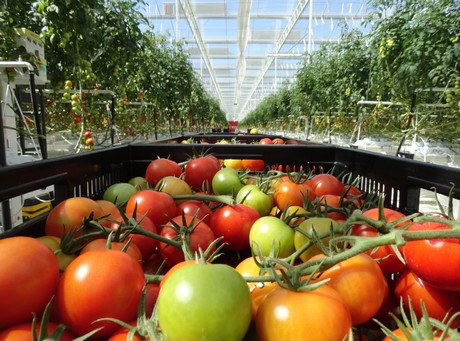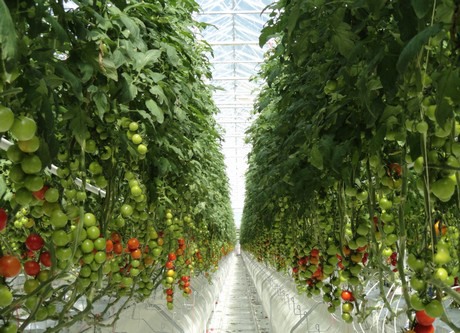A tough task associated with growing fresh produce is the appropriate planning to ensure that enough product is available to meet customer demand. Some of those risks are mitigated with greenhouse growing, but the 'all your eggs in one basket' approach can lead to shortfalls. For that reason, Windset Farms® uses their distributed growing operations located throughout North America to supply to their customers.

Diversified approach
“Geographical diversity can help lower the risk of supply issues due to crop problems,” noted John Newell, chief operating officer for Windset. “Having production in different places mitigates the potential risk of crop failure in one area.” Their diversified approach includes over 660 acres of their own and contracted greenhouse space in the U.S., Canada and Mexico. They also regularly purchase product from local growers and overseas to fill any gaps in production that may arise. Aside from providing cover, different growing regions provide advantages when it comes to transportation.“We can be more efficient with freight when supplying the Western Canadian and Pacific Northwest markets from our facility in British Columbia,” said Newell. “The products from California typically go to market in the Southwestern United States.” Windset’s partner growers in Mexico take advantage of warmer conditions and more consistent sunshine during the winter months to help overlap production getting the most out of Windset's growing regions, and Newell said they take that into account when figuring out crop schedules.
“Depending on the programs we have with our customers, we change the timing of different crops,” said Newell. “We can balance acreage between California, British Columbia, Mexico and overseas supply.”
Huge steps in Mexico
Newell added that he was very pleased to see such uniform quality between the produce from all these different locations. "Our growers in Mexico have taken huge steps over the last years, and nowadays you can't see any difference with the produce grown there, the United States or Canada. We only work with the best growers that are really dedicated to their crops and have the best capacities. They grow in greenhouses with the same high technical standards as we do."
While Mexico offers the advantage of milder winters, Newell also touted the advantages of growing in Santa Maria, California. Although the coastal area doesn't offer as much sun as desert locales, Newell explained that the moderate temperatures are as equally beneficial.
Alternative energy
However, heating costs are still a large part of the production cost at any location, and according to Newell, Windset Farms® is always looking to be innovative in order to grow sustainable, both environmentally and economically.“We use natural gas as our primary source of heating in California, but we're looking at alternatives,” said Newell. That includes solar, co-generation and geothermal energy. All of those options provide the possibility of selling power back into the energy grid, but Newell thinks the best approach is to find the right mix that gives them enough energy to satisfy their own needs.
About Windset Farms
 Headquartered at their Delta, B.C. facility and with greenhouses in Abbotsford, B.C., Santa Maria, California and Las Vegas, Nevada, Windset Farms is a family-run business that has become one of the largest growers and marketers of greenhouse produce. Windset products are sold across Western Canada, the Western United States, Mexico and Asia. Windset grows only non-GMO produce including peppers, cucumbers, tomatoes, lettuce, eggplant and endive. The company’s facilities combine state-of-the-art technology and old-fashioned attention to detail to ensure optimal growing conditions and sustainable practices.
Headquartered at their Delta, B.C. facility and with greenhouses in Abbotsford, B.C., Santa Maria, California and Las Vegas, Nevada, Windset Farms is a family-run business that has become one of the largest growers and marketers of greenhouse produce. Windset products are sold across Western Canada, the Western United States, Mexico and Asia. Windset grows only non-GMO produce including peppers, cucumbers, tomatoes, lettuce, eggplant and endive. The company’s facilities combine state-of-the-art technology and old-fashioned attention to detail to ensure optimal growing conditions and sustainable practices.Visit www.windsetfarms.com for recipes and product information.
